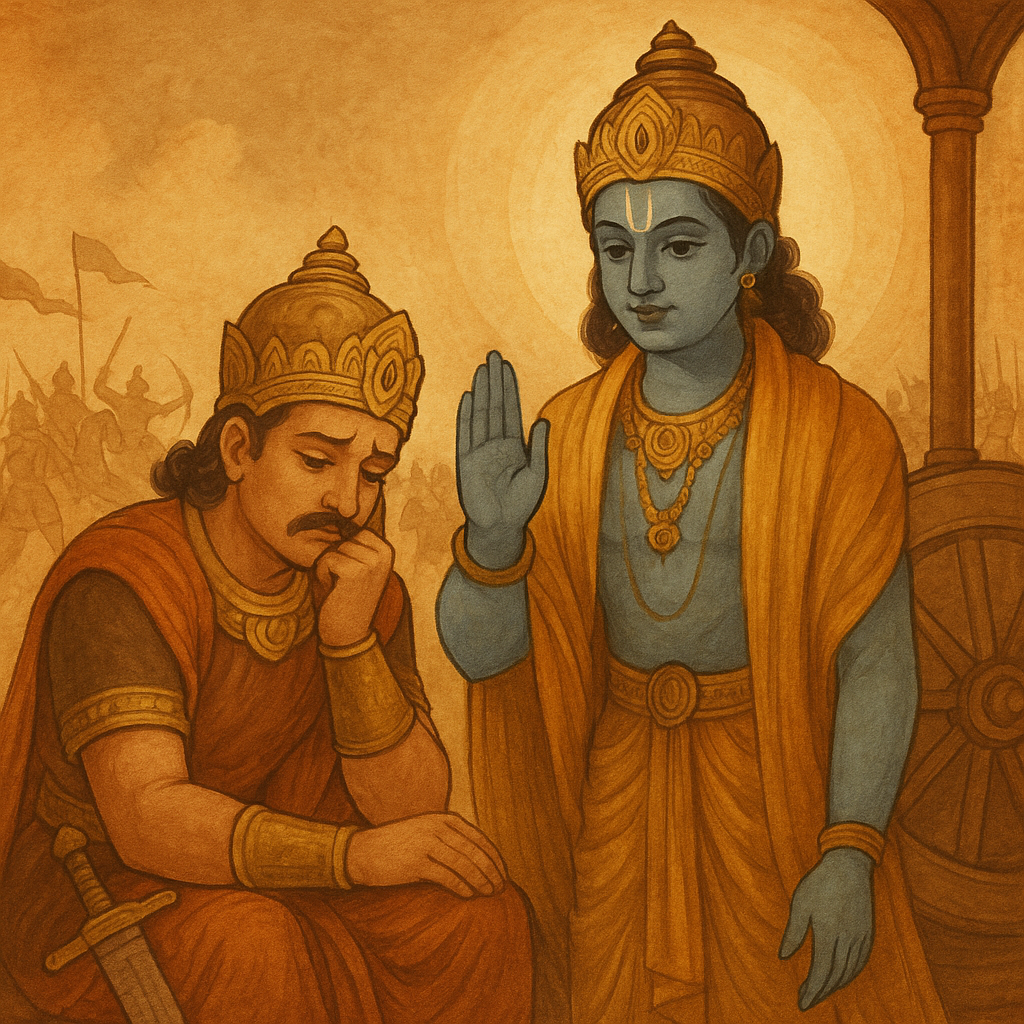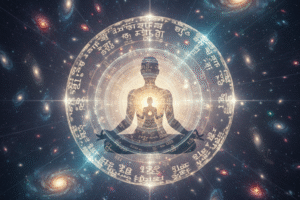
Ch-1|Meaning of Shlokas 31-47
- Posted by Sri Kameswari Foundation
- Date June 24, 2025
- Comments 0 comment
In our second episode,we saw Arjuna overcome by misplaced compassion upon seeing his own kinsmen on the battlefield.He was consumed by the thought of killing his relatives and destroying his own dynasty,which led him into a state of deep confusion.
In this third episode,Arjuna continues to share his reluctance to fight with Bhagavān Śrī Kṛṣṇa. He expresses his fears about the consequences of the Mahābhārata war,imagining the destruction that would follow.His mind races ahead,and he begins to speculate on the long-term aftermath—thinking far into the future about the social and moral collapse that might result.
Śloka 32: Arjuna continues to remain in a state of deep distress.He says,“O Kṛṣṇa,I no longer desire victory,nor do I wish to enjoy the kingdom or any pleasures.What is the use of all these when the people for whom I longed for them—my own kith and kin—will perish in this war?”
Śloka 33: He expresses that the very people—like Bhīṣma and Droṇa—for whom he had once desired wealth and success,would be killed in this war.So,he feels there is no value in attaining those pleasures anymore.
Ślokas 34–39: In these verses,Arjuna continues to express similar emotions in various ways. His thoughts revolve around the same theme—how the destruction of his loved ones makes the idea of war and victory meaningless.
Śloka 40: Here,Arjuna begins to think of the larger consequences.He says,“If the men of the family are destroyed in war,the family traditions(kula dharma,sampradāyas) will be lost.When traditions are broken,adharma will take over the family—just as darkness spreads when there is no light.”
Śloka 41: He continues,“When adharma takes hold of a family,the women may lose their moral grounding.This,in turn,leads to mixing of varṇas,as they may associate with those outside their own values and discipline.”
Śloka 42: Arjuna adds,“Those who cause this varṇasaṅkara will fall into naraka,along with their entire lineage.Their ancestors will no longer receive the traditional offerings (piṇḍa and udaka) from their descendants,leading to their fall from higher worlds.”
Śloka 46: Finally, disillusioned and overwhelmed by emotion, Arjuna lays down his śastras and says to Śrī Kṛṣṇa,“Rather than fighting this war, it would be better for me to be killed by the Kauravas—who are evil in nature and stand before me.
Śloka 47: Sañjaya,the narrator,tells King Dhṛtarāṣṭra: “Having spoken thus,Arjuna,overwhelmed by sorrow,set aside his bow and arrows and sank down into the seat of his chariot.”
We’ve now completed Chapter 1 – Arjuna Viṣāda Yoga.
Let’s pause and reflect on how Arjuna’s doubts mirror our own moments of weakness.With this awareness,we’re ready to step into Chapter 2 – Sāṅkhya Yoga, where Śrī Kṛṣṇa begins to guide us toward clarity and strength.
You can also listen to this in Telugu from our Āchārya,Dr. Jammalamadaka Suryanārāyaṇa garu,by clicking the video below.
You may also like

Ch-2|Meaning of Shlokas 18-23

True Scholar,Analogy of Clothes

